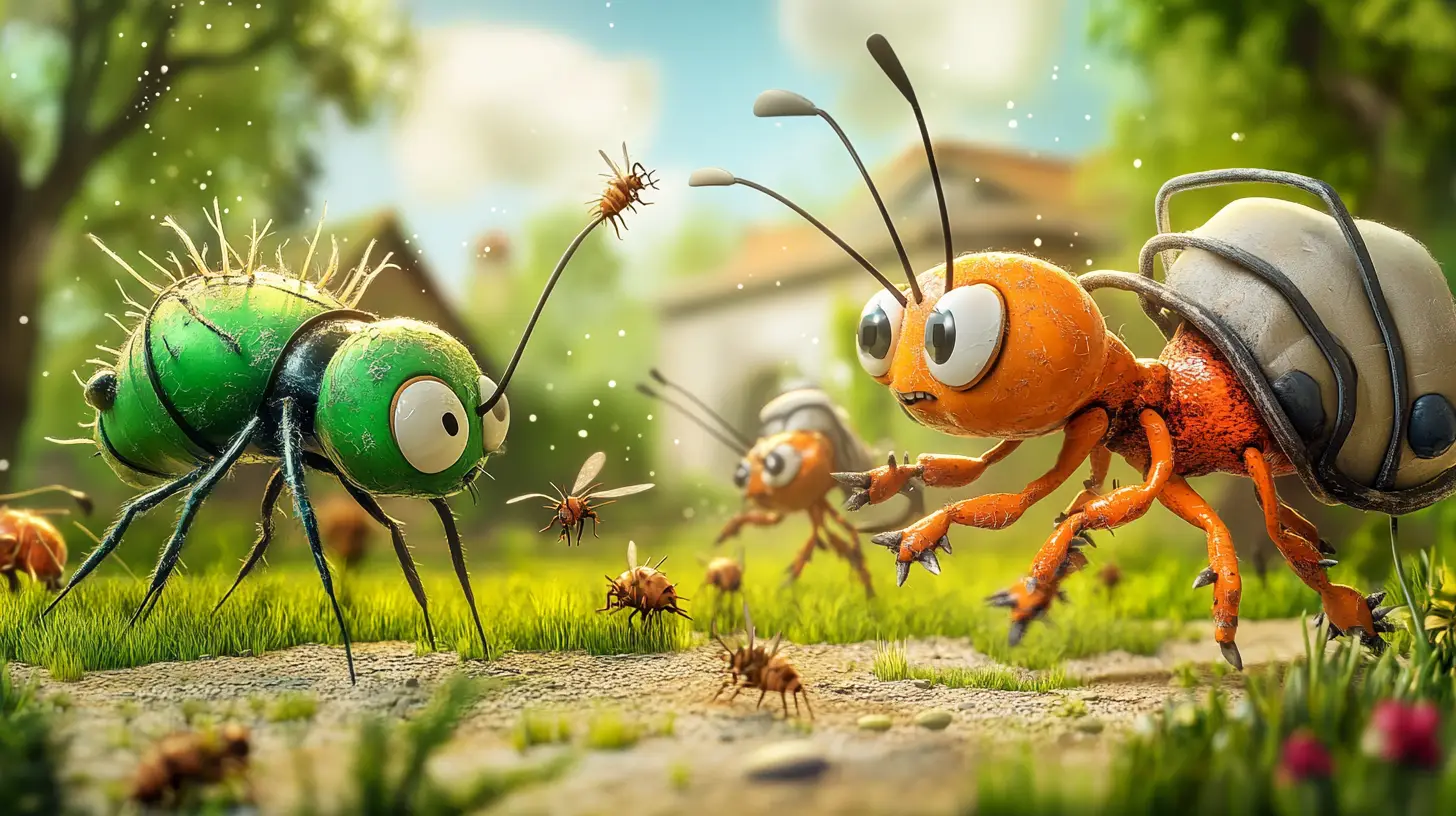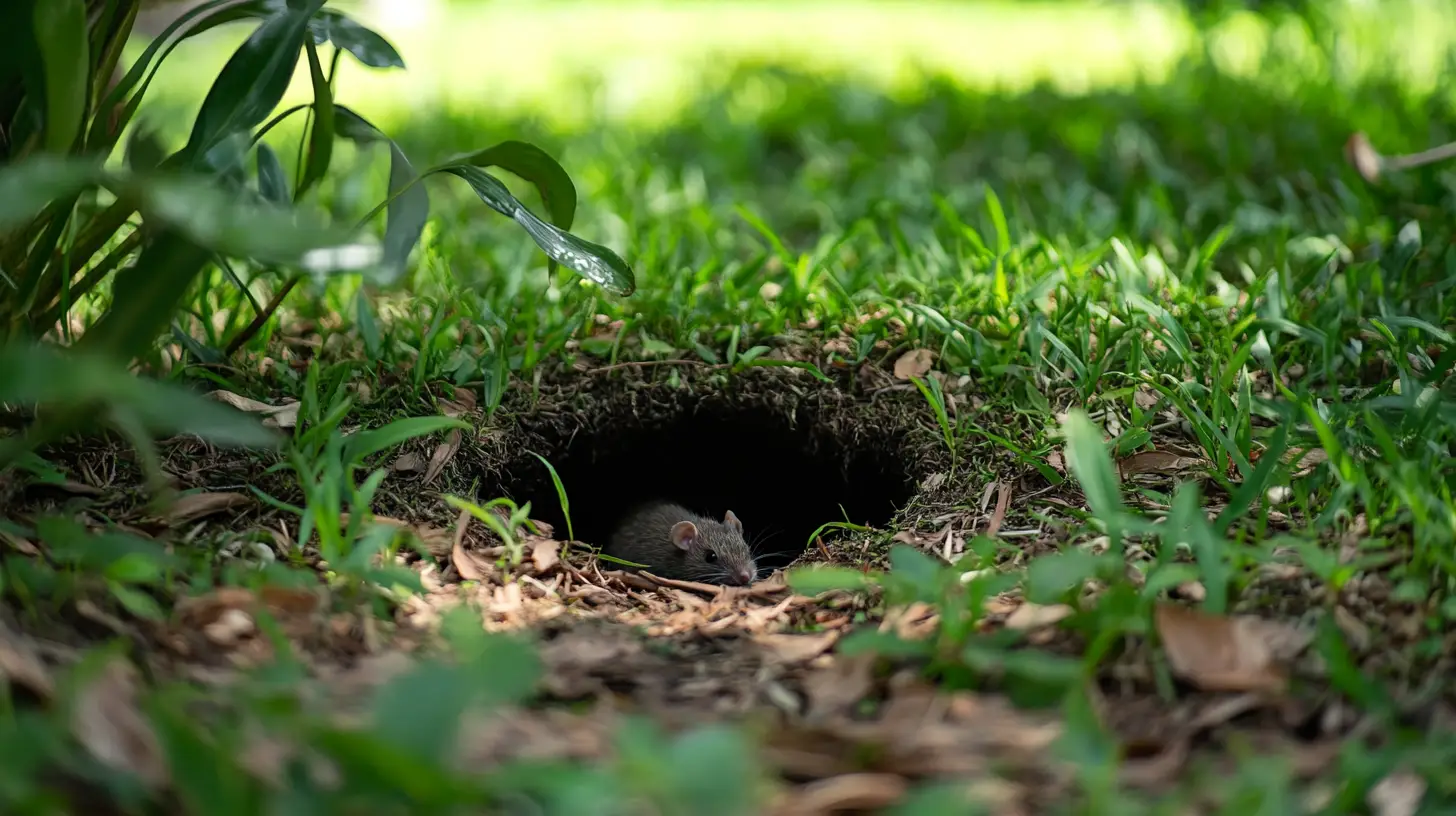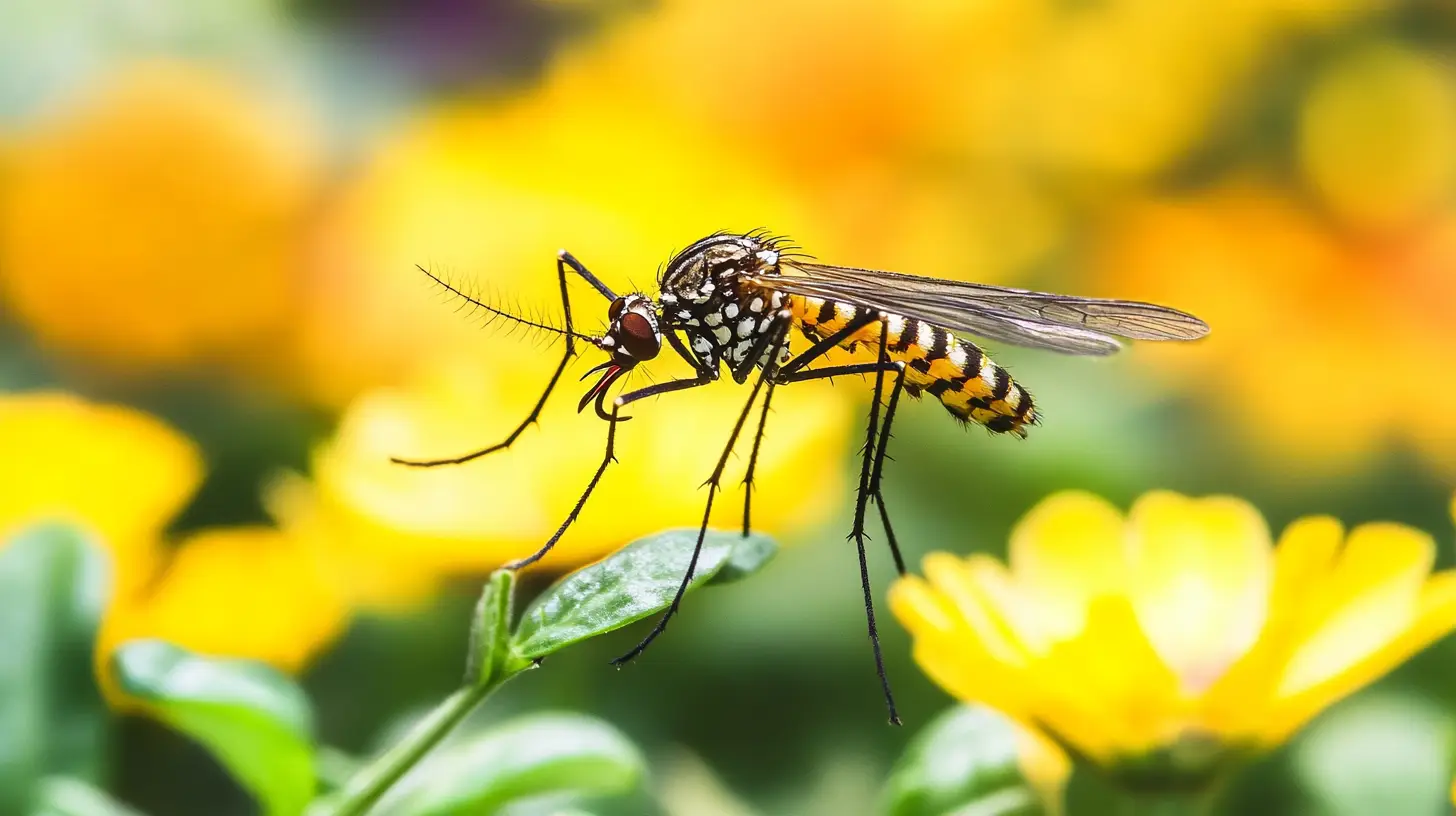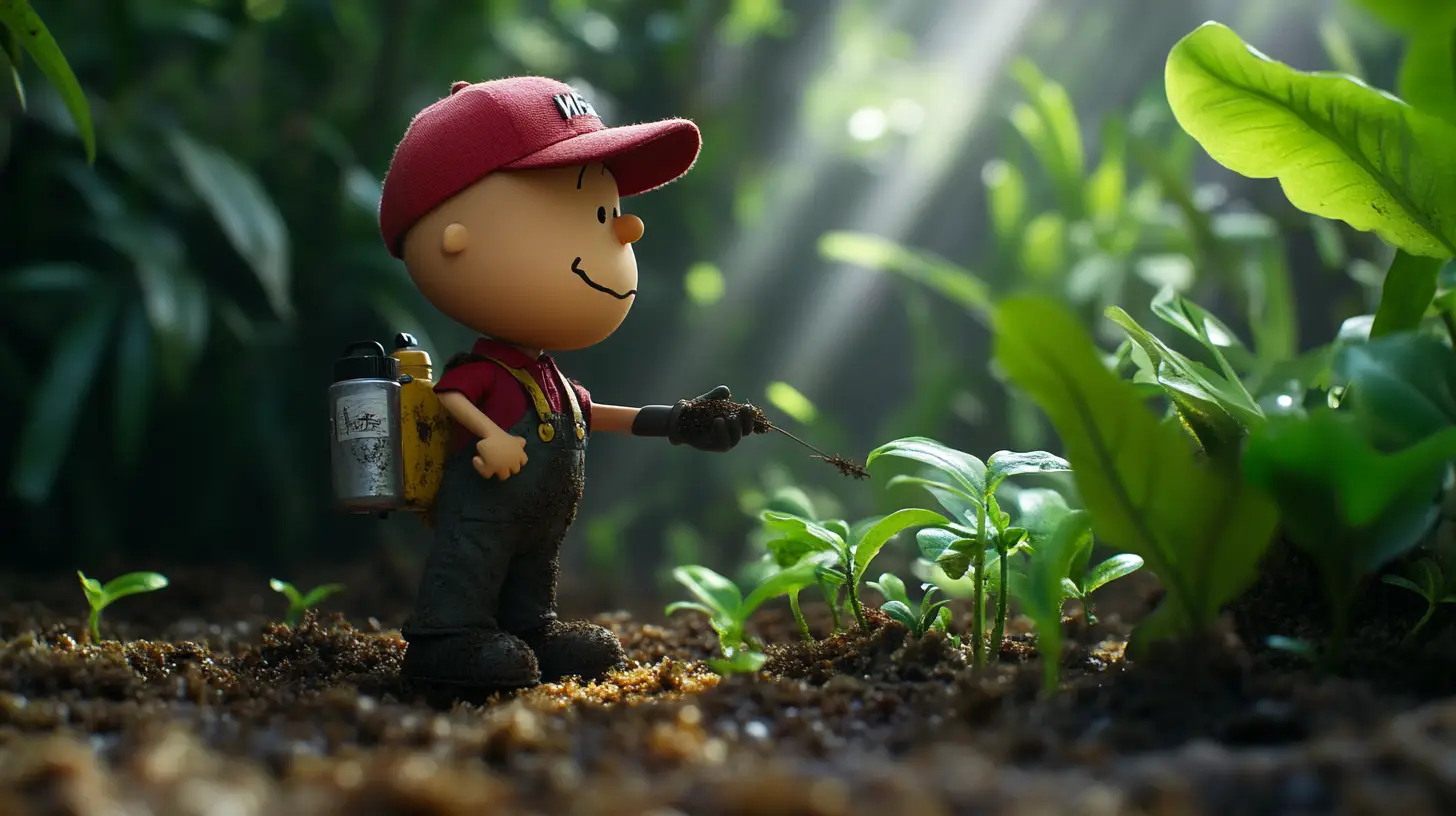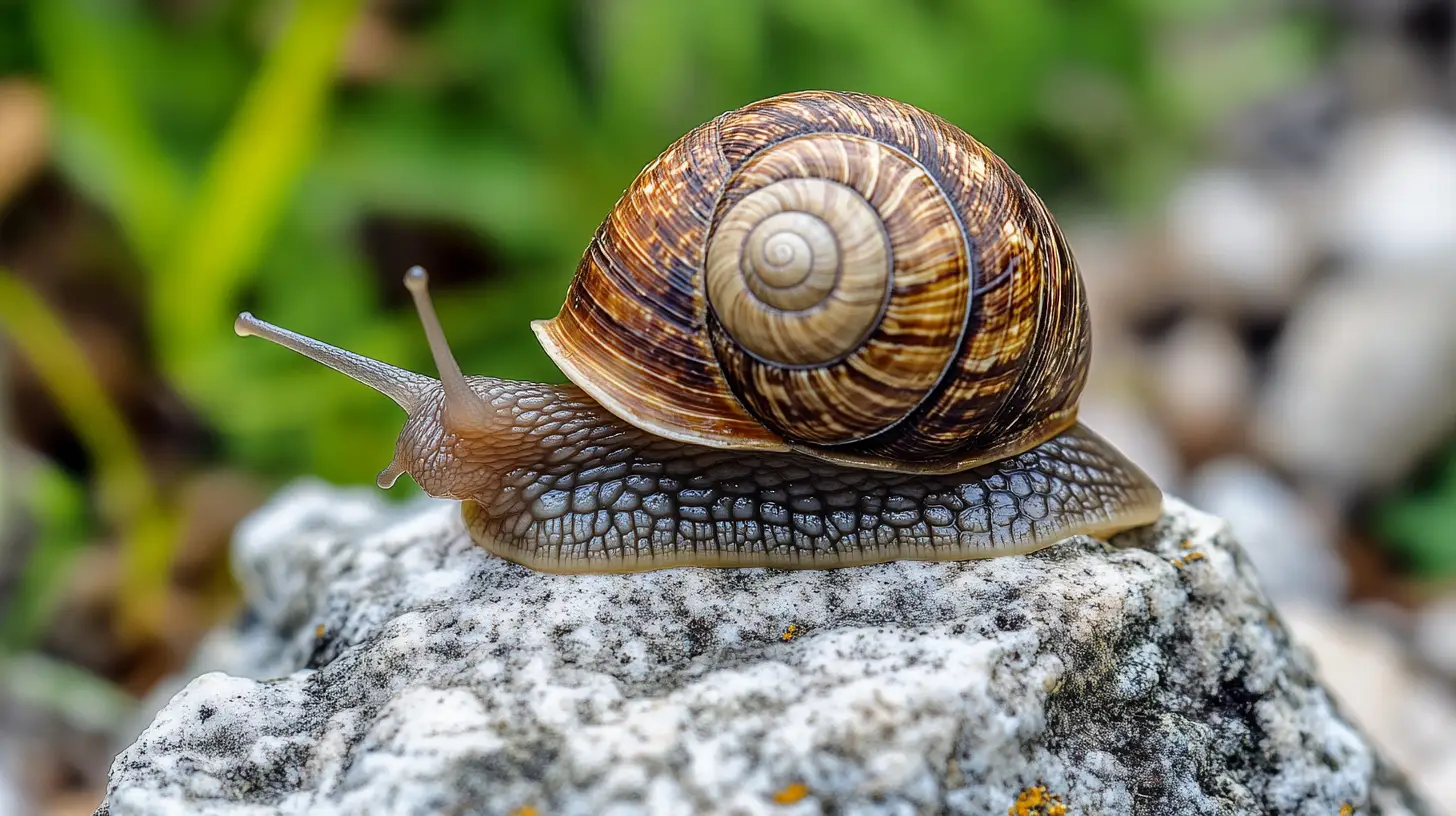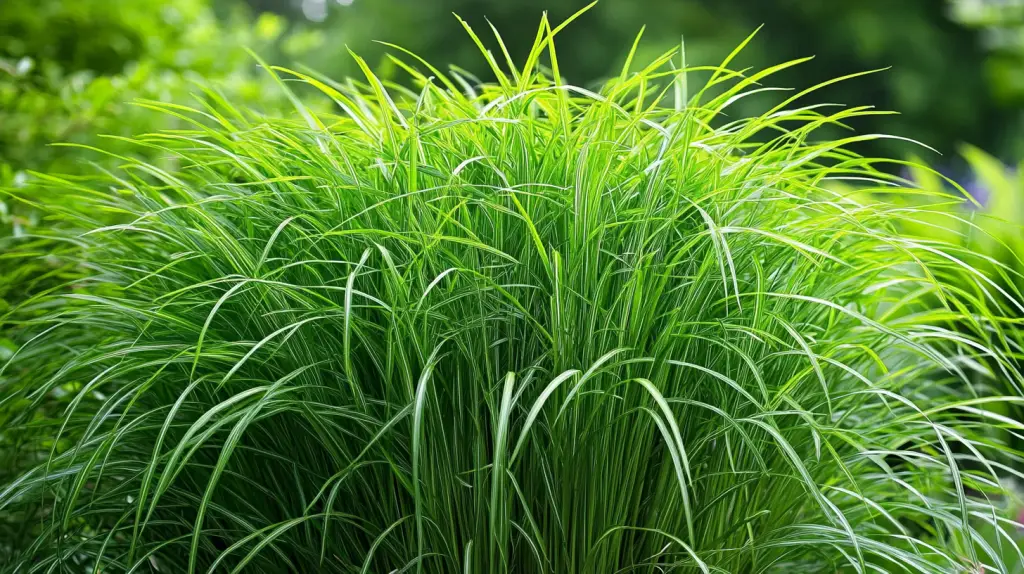
Table of Contents
If you’re tired of battling mosquitoes every time you step outside, it’s time to harness the power of plants that keep mosquitoes away. These natural repellents are more than just garden additions—they’re eco-friendly solutions to reclaim your outdoor spaces without relying on harsh chemicals. From the soothing scent of lavender to the potent menthol in peppermint, these plants offer a variety of ways to keep mosquitoes at bay while enhancing the beauty and functionality of your garden.
Did you know that some plants, like catnip, are scientifically proven to be up to 10 times more effective than DEET, a common ingredient in mosquito repellents? Others, like marigolds, contain pyrethrum, a natural insecticide that not only deters mosquitoes but also protects your other plants from pests. For a fragrant approach, citronella grass and lemongrass release compounds like citral that mosquitoes simply can’t stand. Basil, a favorite in the kitchen, can double as a quick mosquito repellent when its leaves are crushed and applied to your skin.
But it’s not just about repelling mosquitoes. Plants like peppermint and rosemary bring extra benefits—peppermint soothes itchy bites, and rosemary’s smoke, when burned, acts as a natural barrier against these pests during your outdoor gatherings. Even ornamental plants like scented geraniums add a decorative touch while keeping mosquitoes at bay with their high citronellol content.
Incorporating these mosquito-repelling plants into your garden or patio can transform your outdoor experience, making it more enjoyable and pest-free. Ready to learn how to grow and use these incredible plants to your advantage? Let’s dive into the fascinating world of mosquito-repelling greenery and explore how you can protect your space naturally!
Key Takeaways:
- Natural Repellents: Mosquito-repelling plants like lavender, citronella grass, and marigolds release natural oils and compounds that deter mosquitoes without the use of harmful chemicals.
- Dual Benefits: Many plants, such as basil and rosemary, not only repel mosquitoes but also attract pollinators like bees and butterflies, creating a balanced and thriving garden ecosystem.
- Perfect for Lakewood Ranch: Florida’s warm, sunny climate is ideal for growing a variety of mosquito-repelling plants. From mint in containers to marigolds in garden beds, there are plenty of options to suit your yard.
- Enhanced Outdoor Enjoyment: Strategically placing these plants near patios, pathways, and doorways can create a natural barrier, keeping mosquitoes at bay while adding beauty and fragrance to your outdoor spaces.
- Part of a Holistic Approach: While these plants are effective, they work best alongside other mosquito control methods like removing standing water and using screens to protect your home.
The Ultimate Guide to Plants That Keep Mosquitoes Away in Lakewood Ranch
When the Florida heat sets in, so do the mosquitoes, making outdoor relaxation a challenge for residents of Lakewood Ranch. But there’s good news! With the right plants, you can naturally repel mosquitoes while beautifying your yard. Certain plants emit oils and compounds that mosquitoes find unbearable, providing an eco-friendly solution to keep your outdoor spaces pest-free. Even better, many of these plants also attract beneficial insects like bees and butterflies, creating a balanced and vibrant garden.
Whether you’re planning for spring or want to enjoy winter gatherings mosquito-free, planting these natural repellents can make all the difference. In this guide, we’ll explore the best plants that keep mosquitoes away, how they work, and tips for growing them in Lakewood Ranch’s unique climate.
Top Mosquito-Repelling Plants
Lavender (Lavandula angustifolia)
Lavender isn’t just a fragrant beauty—it’s a powerful mosquito deterrent. The plant’s calming scent comes from its high concentration of linalool, a compound that mosquitoes can’t stand.
- Growth Tips: Lavender prefers dry, well-drained soil, which can be challenging in Florida’s humidity. Opt for Spanish lavender (Lavandula stoechas), which thrives better in this region.
- Additional Benefits: It also repels moths and fleas while attracting bees and butterflies.
Pro Tip: Plant lavender along pathways or near patios to create a mosquito-repelling barrier while enjoying its aroma.
Citronella Grass (Cymbopogon nardus)
Citronella grass is one of the most well-known plants for repelling mosquitoes. Its natural oils are a staple ingredient in mosquito repellents.
- Growth Tips: Citronella thrives in Lakewood Ranch’s warm climate with full sun and well-drained, moist soil.
- Placement Ideas: Plant it around patios or seating areas for maximum effectiveness.
Marigolds (Tagetes)
Marigolds are vibrant additions to any garden and a natural mosquito deterrent, thanks to the pyrethrum they contain.
- Growth Tips: These hardy flowers thrive in Florida’s heat and humidity. Plant them in sunny areas with well-drained soil.
- Bonus: Marigolds also repel aphids and whiteflies, making them excellent companions for vegetable gardens.
Pro Tip: Place marigolds near windows or doorways to keep mosquitoes from entering your home.
Basil (Ocimum basilicum)
Not just for your favorite recipes, basil is a natural mosquito repellent. Its strong scent deters mosquitoes and houseflies.
- Growth Tips: Basil thrives in Florida’s warm climate but benefits from afternoon shade during peak heat.
- Double Duty: Plant basil near outdoor dining areas for easy access to fresh herbs while keeping mosquitoes at bay.
Rosemary (Rosmarinus officinalis)
Rosemary’s woody scent doubles as a mosquito deterrent. Its aromatic oils are particularly effective when the plant is burned.
- Growth Tips: Rosemary tolerates sandy soil and hot conditions, making it ideal for Lakewood Ranch gardens.
- Bonus: Burn dried rosemary sprigs during outdoor gatherings to create a natural mosquito-repelling smoke.
Plants That Attract Beneficial Insects
In addition to repelling mosquitoes, some plants attract helpful insects like bees, butterflies, and ladybugs, which naturally control garden pests.
Yarrow (Achillea millefolium)
Yarrow supports pest-predator ecosystems, helping reduce aphids and other harmful insects.
- Growth Tips: Drought-tolerant and thrives in well-drained soil with minimal watering.
- Attracts: Ladybugs, lacewings, and butterflies.
Dill (Anethum graveolens)
Dill attracts predatory insects like parasitic wasps and ladybugs, which help keep harmful pests in check.
- Growth Tips: Best grown in Florida’s cooler months. Protect from strong winds and provide well-drained soil.
- Bonus: Dill also repels spider mites and aphids.
Fennel (Foeniculum vulgare)
This fragrant herb attracts butterflies and lacewings, making it a valuable addition to a balanced garden.
- Growth Tips: Fennel thrives in sandy, well-drained soil and full sun.
- Caution: Keep fennel separate from other herbs as it can inhibit their growth.
Multi-Purpose Pest Control Plants
Some plants do it all—repelling mosquitoes, attracting beneficial insects, and improving your garden’s ecosystem.
Chrysanthemums (Chrysanthemum indicum)
Chrysanthemums are powerhouse plants that repel a variety of pests, including mosquitoes, fleas, and ants.
- Growth Tips: They prefer cooler seasons and thrive in well-drained soil with partial to full sun.
- Bonus: These flowers are excellent for garden edges or pots near entryways.
Mint (Mentha)
Mint’s refreshing scent is despised by mosquitoes and ants alike.
- Growth Tips: Mint thrives in Florida’s climate but can be invasive. Grow it in containers to control its spread.
- Usage: Crush mint leaves for an on-the-spot mosquito repellent.
Planting Tips for a Mosquito-Free Garden
- Soil and Drainage: Most mosquito-repelling plants prefer well-drained soil. Raised beds or adding organic matter can improve drainage in Florida’s sandy soil.
- Sunlight: While many of these plants thrive in full sun, some (like basil and mint) benefit from afternoon shade.
- Seasonality: Plan your planting based on the seasons. Cool-weather plants like dill and cilantro grow best in fall and winter, while heat-tolerant plants like marigolds and basil shine in spring and summer.
- Avoid Chemicals: Chemical pesticides can harm beneficial insects. Stick to natural pest control to maintain a balanced ecosystem.
Prepare Your Garden for Spring
As winter transitions to spring, now is the perfect time to plant mosquito-repelling and beneficial insect-attracting plants in your Lakewood Ranch yard. By planning ahead, you’ll enjoy a pest-free, thriving outdoor space that’s as functional as it is beautiful. Whether you’re a seasoned gardener or just starting, these plants are easy to grow and offer incredible benefits.
Ready to reclaim your yard from mosquitoes? Start planting today and enjoy the rewards of a natural, mosquito-free haven in the heart of Lakewood Ranch!
Frequently Asked Questions (FAQs)
What Are the Best Plants That Keep Mosquitoes Away?
The best mosquito-repelling plants include lavender, citronella grass, marigolds, basil, and rosemary. These plants emit natural oils and compounds that mosquitoes find unpleasant, making them effective natural repellents. Other great options include mint, catnip, and chrysanthemums, which offer additional pest-repelling benefits.
How Do Plants Repel Mosquitoes?
Certain plants release aromatic compounds such as linalool, citronellal, and pyrethrum, which mosquitoes find unappealing. These compounds can mask the scent of carbon dioxide and body odors that attract mosquitoes. Additionally, some plants, like citronella grass, produce oils that actively deter mosquitoes from lingering in the area.
Can I Use Mosquito-Repelling Plants Indoors?
Yes! Many mosquito-repelling plants, such as lavender, mint, and basil, thrive indoors when given adequate sunlight and proper care. Place them near windows, doorways, or any area where mosquitoes might enter your home. Potted plants are also convenient for moving indoors during colder months.
Do Mosquito-Repelling Plants Attract Pollinators?
Yes, many mosquito-repelling plants, like lavender, basil, and rosemary, attract pollinators such as bees and butterflies. These plants balance repelling harmful pests while supporting beneficial insects, which helps create a thriving, eco-friendly garden.
What Is the Easiest Mosquito-Repelling Plant to Grow in Lakewood Ranch?
Marigolds are among the easiest mosquito-repelling plants to grow in Lakewood Ranch. They thrive in Florida’s warm, humid climate, require minimal care, and grow well in sunny areas with well-drained soil. Citronella grass and mint are also hardy options for this region.
Can I Use Mosquito-Repelling Plants in My Landscaping?
Absolutely! Incorporate mosquito-repelling plants into your landscaping by planting them along pathways, around patios, or near entry points to your home. Plants like lavender and marigolds not only repel mosquitoes but also add vibrant color and texture to your outdoor spaces.
Do Mosquito-Repelling Plants Work Better in Pots or Garden Beds?
It depends on the plant and your needs. Some plants, like mint, are best grown in pots to prevent them from spreading uncontrollably. Others, like marigolds and citronella grass, thrive in garden beds and can create a natural barrier when planted strategically. Containers also allow for easy repositioning based on sunlight and space requirements.
How Can I Maximize the Effectiveness of Mosquito-Repelling Plants?
To maximize their effectiveness, place mosquito-repelling plants in high-traffic outdoor areas such as patios, seating areas, and near doorways. Crush or rub the leaves of plants like basil, mint, or lavender to release their natural oils. Burning rosemary sprigs during gatherings also enhances their repelling effect.
Can I Use Essential Oils from Mosquito-Repelling Plants?
Yes, essential oils derived from plants like lavender, citronella, and peppermint can be used as natural mosquito repellents. Mix a few drops with water to create a spray or use them in diffusers to keep mosquitoes at bay indoors. Always follow dilution guidelines to avoid skin irritation.
When Should I Plant Mosquito-Repelling Plants in Lakewood Ranch?
The best time to plant mosquito-repelling plants depends on the species. Cool-weather plants like dill and cilantro should be planted in fall or winter, while heat-tolerant plants like basil and marigolds thrive when planted in spring or summer. Preparing your garden during winter ensures it’s ready to thrive as spring approaches.
Do Mosquito-Repelling Plants Replace the Need for Other Mosquito Controls?
While these plants are effective at deterring mosquitoes, they work best as part of a broader pest control strategy. Combine them with measures like eliminating standing water, using physical barriers like mosquito screens, and applying natural repellents to ensure a comprehensive approach to mosquito control.



